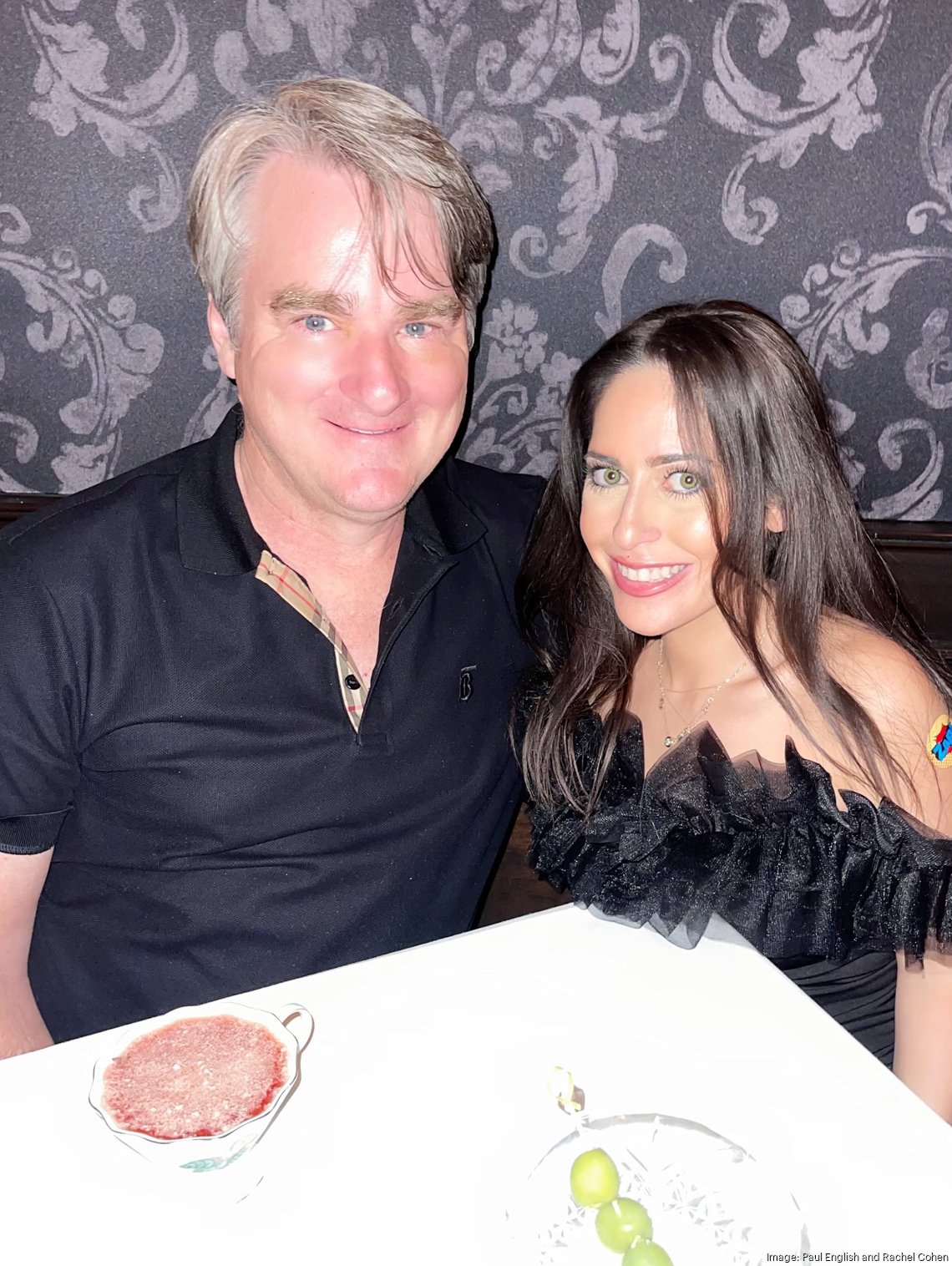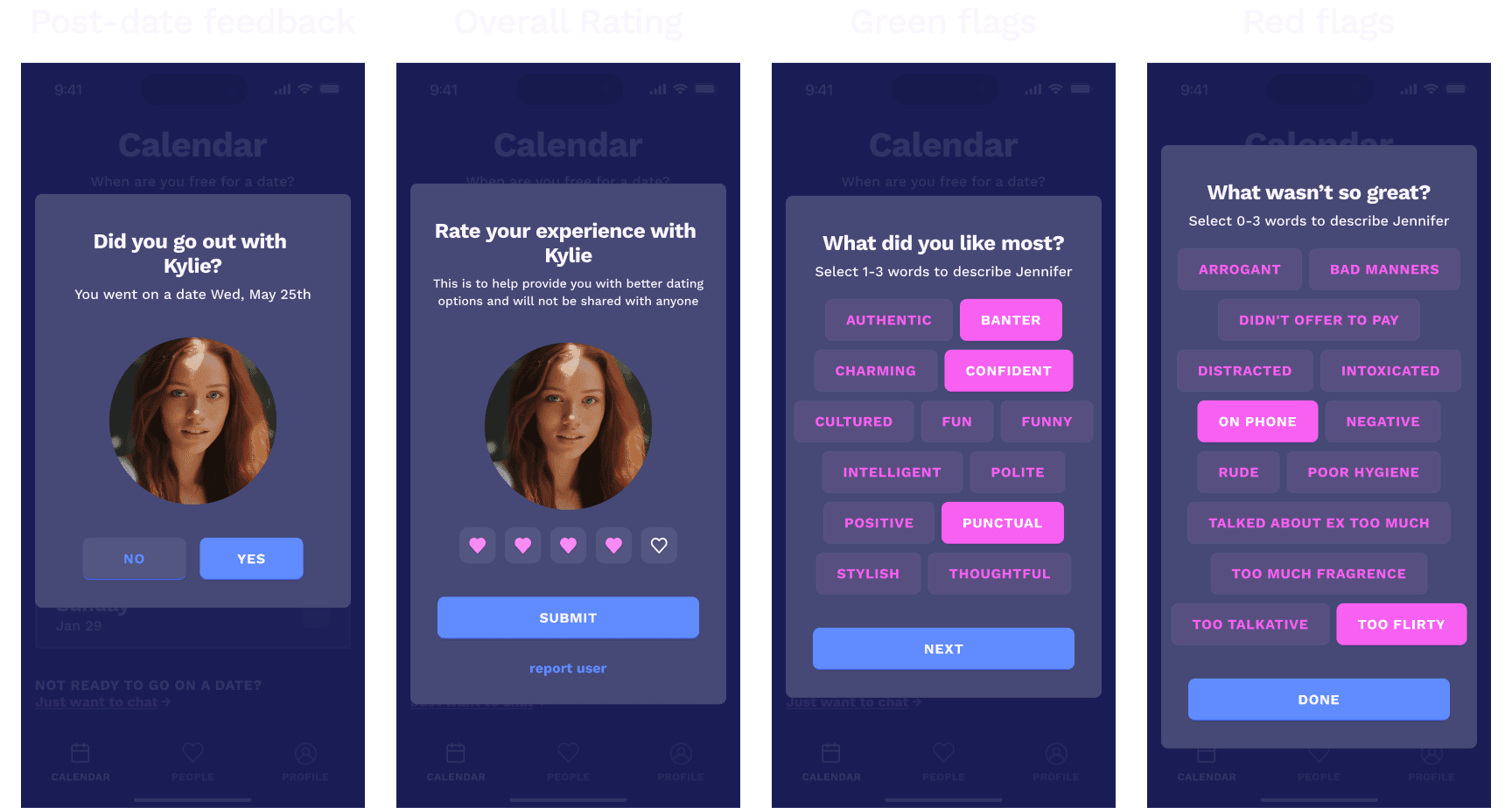
Paul English has already built businesses to tackle travel, customer service and “fake reviews.” Now, he’s working on something new for the single people out there who aren’t loving their experience on dating apps.
English and his fiance Rachel Cohen are the co-founders of a new dating app that launched this week in the app store. The app’s users are matched primarily based on what days they’re available to go on dates. English and Cohen said their goal is to get people out on in-person dates and avoid the endless chatting and ghosting prevalent on dating apps.
The app might be new, but its name — Lola Dating, not to be confused with Lola Travel — is a familiar one to those in the Boston business world.
Lola is a name that has followed English throughout his entrepreneurial career. When English co-founded the travel tech firm Kayak in 2004, it was initially called Travel Search Company Inc. English said a New York agency came up with five new names for the company, and Lola was the first choice. But at the time, they couldn’t afford the domain. So, they went with Kayak, their second choice. English said it cost them $30,000.
After Kayak sold to Priceline for $1.8B, English started a business travel company. He still loved the name Lola and decided to finally buy the domain. English previously told the Business Journal he paid half a million dollars for it.
“We ended up selling (Lola) successfully to Capital One two years ago, but Capital One bought it for the technology, not the brand,” English said. “So I kept the name. And so when Rachel came up with an idea for the dating app, I said let’s call it Lola because I’ve always just loved that word.”
As a travel company, Lola stood for “longitude” and “latitude.” Cohen said they’ve repurposed Lola to mean “love language.”
English and Cohen interviewed over 200 people to learn about their dating app gripes. But the pair also has personal experience in this area. They met on Bumble about four years ago.
Cohen said she remembers talking about the “saturated” dating app space from their second or third date.
“Nothing’s really different about any of the apps,” Cohen said, other than the different demographics of people on different platforms. Cohen’s background is in human resources for fashion and lifestyle brands.
With Lola, users choose what days they want to go on dates, Cohen said. The app then only matches users with others who are free on the same days.
The app also has a feedback loop. After each date, users rate the other person on a scale of one to five. The Lola team looks into users getting a one, the lowest score, to see if they’re making people feel unsafe or don’t match their profile.
Cohen said users also give a few pieces of positive feedback — their date was punctual or polite — and a few pieces of constructive criticism — they talked about their ex too much. After every five dates, Lola will give users the option of seeing a word cloud of the overall feedback they’ve received.

English said they have a patent pending on their approach to closed-loop dating. The feedback users provide is also fed into a machine learning system to see what’s important to them and provide better matches.
“If a woman likes guys that are funny, we will start showing on your feed other guys that have been rated funny by other people,” English said.
English and Cohen hope Lola will create strong matches, but also a community of “good daters.”
“We almost want it to be where we’re cultivating this community where we’re training people to be good daters. Almost that anyone on Lola could have dinner with anyone else on Lola and have basically a good time,” English said.
For now, users who download Lola can join its waitlist. Englishsaid once they get 5,000 people on it, they’ll open the app and start making matches. Lola’s target audience is young professionals aged 25 to 35. English said it’s for people just looking to meet new people and have fun or those looking for a serious relationship.
Lola is launching first in Boston and will be live in New York around January, English said. It’s free to use but will eventually include a premium paid model. English said he and Cohen put in a $500,000 seed and plan to raise more funding in December.
Ten people are working on the Lola team. Lola is just one of several new businesses coming out of English’s Boston Venture Studio, including Deets, an app that launched last year to be a source for recommendations on places like restaurants from people’s network of friends.
